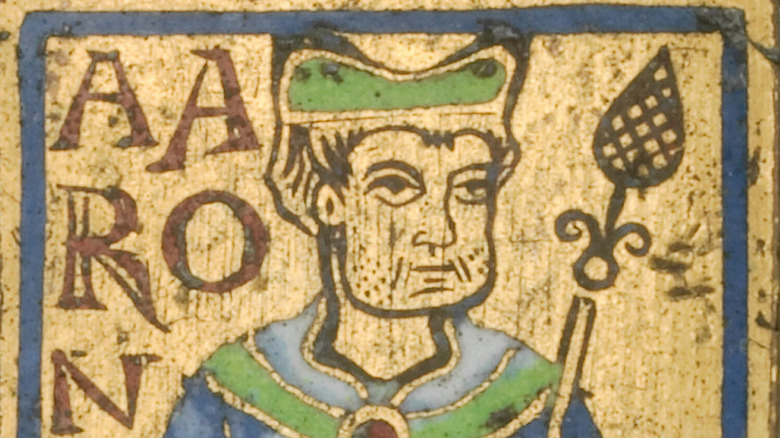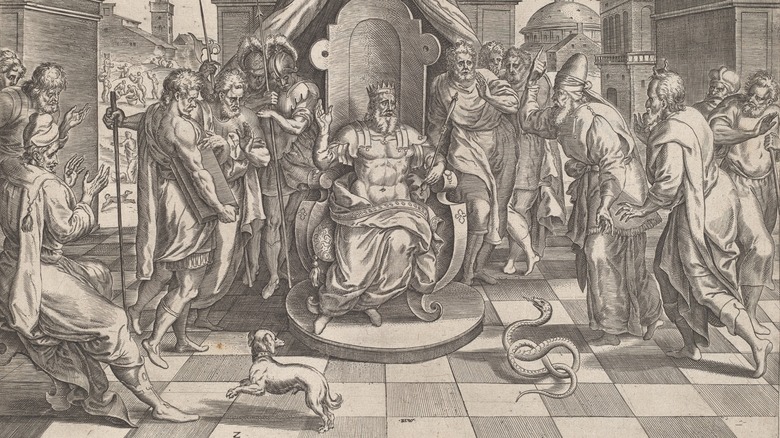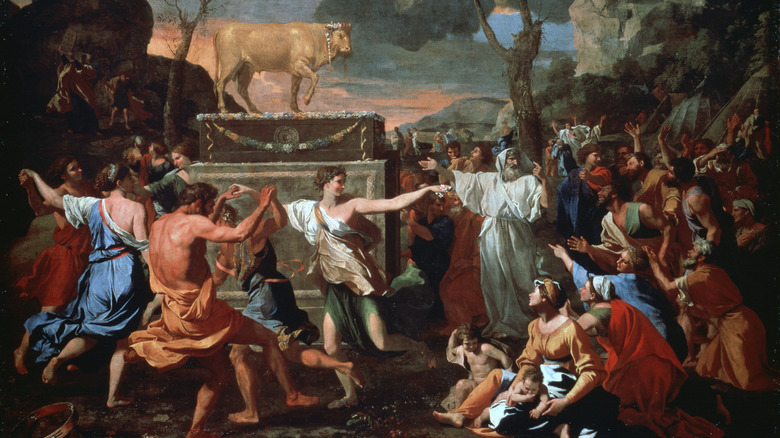Who Was Aaron From The Bible?
Aaron is a common name in the United States, hitting its peak of popularity as a name for newborn babies between the mid-1970s and the mid-1980s. Though less popular than it once was, it remains one of the top 100 male baby names in the country, according to Behind the Name. And, like many common American names, it is Biblical in origin.
Aaron is prominent in Biblical history as the elder brother of Moses, who is one of the key figures of the Old Testament among others such as Abraham. Aaron is first mentioned in the second book of the Bible, Exodus, in which God informs him that he must join his brother Moses and assist in the liberation of the Israelites from Egypt. Though, for the sake of simplicity, Moses' story and that of the Israelites is told with the prophet acting as the sole leader of the tribe, Aaron played a decisive and active role in their liberation — and also had a checkered part in the events that followed, leading to his reputation among many theologists today as a flawed prophet.
Aaron vs. the Pharaoh
Aaron was instrumental in helping Moses — credited as the man to free the Israelites from Egypt — on his quest. Through Moses, God told Aaron to throw his staff down in front of the Egyptian pharaoh, at which point it turned into a snake, as proof of God's power. It was also Aaron's staff that was used to bring about one of the miracles of the 10 plagues: By striking the River Nile with his staff, God, through Aaron, turned it into blood.
Another important role for Aaron was as Moses' spokesman. While he was the leader of the Israelites, Moses was not blessed with eloquence or presence of voice, admitting to God in Exodus 4:10 that he was "slow of speech and tongue." It was, therefore, Aaron's task to relay Moses' orders to his people — and also to issue their demands to the Egyptian pharaoh.
He broke the second commandment
With the Israelites free from Egypt, Moses and Aaron led them into the wilderness, where Moses famously received the Ten Commandments on the peak of Mount Sinai. Here though, Aaron — who, like the rest of the Israelites, stayed in the desert while Moses ascended the mountain to come close to God — became more hindrance than help to his brother.
The first of the Commandments handed down to Moses was, (via Bible.com), "You shall have no other gods before me." After, God said the second: "You shall not make for yourself an image in the form of anything in heaven above or on the earth beneath or in the waters below. You shall not bow down to them or worship them; for I, the Lord your God, am a jealous God[.]" Unfortunately, when Moses descended from the mountain, he saw that his brother had constructed an idol of a golden calf, which he and the Israelites had proceeded to worship. The sight made God angry enough to consider destroying all of the traveling party except Moses himself, but Moses asked God for leniency, which was granted.
Later, the Israelites would build a great tabernacle in God's honor — a mobile church in the form of a tent that was to be used for worship and ceremonies. Aaron was the first high priest of the tabernacle and served in the position throughout his long life.


